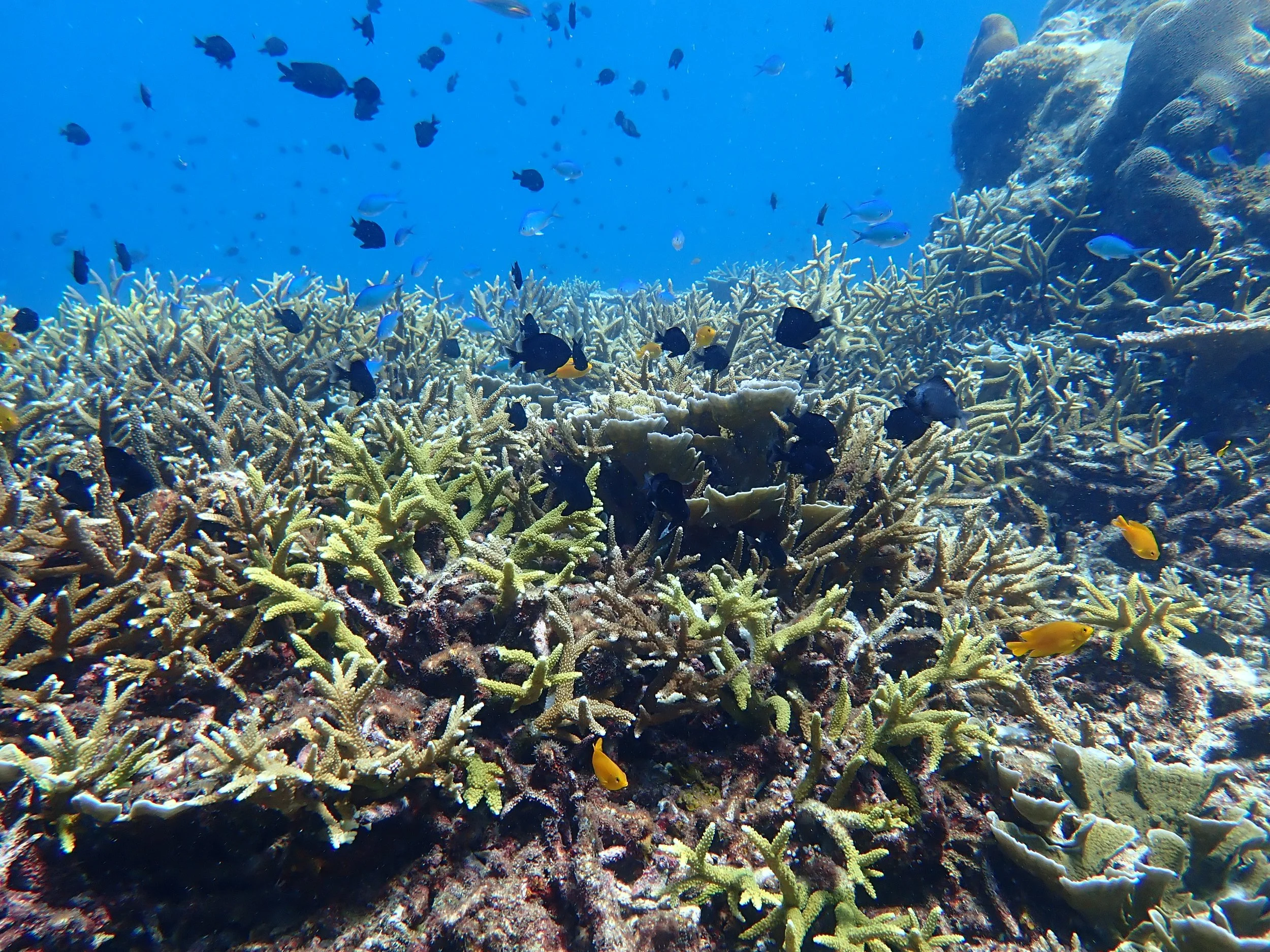Keeping Mantanani Islands Clean With The Community
About Cintai Mantanani
Reef Check Malaysia has been working on Mantanani Island since 2012, when it was identified as a hot spot for fish bombing.
Since then, we have implemented various projects, from reef rehabilitation through to waste management. Our focus now is to support the local community in establishing a community-managed protected area at the islands.
Mantanani Island, sabah
About the Island
Mantanani is a group of islands located in the South China Sea, off the west coast of Sabah in Malaysia. There are two villages on Mantanani Island – Kampung Siring Bukit and Kampung Padang, with a population of 1,000 people. Fishing has traditionally been the main source of income and protein for villagers.
Mantanani Island’s was named after a warrior named 'Nani,' who always wore a blanket ('manta') when fighting against Japanese occupation. In the Bajau Ubian language, the word for blanket is 'manta,' and 'Mantanani' is the combination of these two words, representing the legendary story of 'Nani' and 'Manta' (the blanket).
Waste Management and Recycling Programme
We implemented a waste management and recycling programme on the island to tackle the lack of waste management issues. Before that, the islanders were left with either burying their wastes or discarding them into the ocean.
A local islander doing the daily waste collection
Our team now work with the locals and implemented the 'Daily Waste Collection' programme where wastes from every household are collected every day and separated between general waste and recyclables at the fully solar-powered Mantanani Recycling Centre.
The Mantanani Plastic Recycling Centre (MPRC) is now fully solar-powered
The wastes will then be shipped out of the island to the recycling centre and landfill on the mainland regularly. The locals engaged in collecting the daily waste also gets to earn an income for their work.
The wastes will then be shipped out of the island regularly
Alternative livelihoods in the tourism industry
Alternative livelihood trainings were conducted to encourage environmentally-friendly practices to reduce impacts on our marine ecosystems such as our coral reefs.
To achieve this, we introduced and trained the local community to engage in other occupations such as becoming eco-friendly guides, eco-friendly snorkel guides, and homestay operators.
Mantanani Homestays
In 2023, Mantanani Homestays received 665 visitors and generated RM59,010 in total!
You, too, can experience Mantanani like a true local.
Education and awareness programmes
We also focus on programmes to educate and raise awareness of marine conservation in schools, resort and dive operators to target the local islanders and tourists.
We have also implemented a regular school awareness programme whereby students are exposed to their marine environment and learn about marine life and marine conservation efforts.
Educating the future generation on caring for and loving their marine environment
Training in entrepreneurial skills for the community
We are committed in supporting the local community to flourish in their endeavours.
Reef Check Malaysia has supported the community to upskill by conducting Mandarin lessons classes, first aid classes, basic digital marketing class, cake making class and more.
Local islanders are trained with various new skills
mantanani local products
The community is now also actively producing Virgin Coconut Oil, soaps, lip balms and making souvenirs from upcycled materials such as the Ecopurse and Mantanani magnets.
These items are available for purchase and also make perfect corporate gifts and door gifts for your events. Each purchase helps to empower the community and elevate their income.
Helping the Community during the pandemic
During the COVID-19 pandemic, we introduced the community farming initiative to encourage the community to farm their own food during the difficult time. The community successfully planted long beans, watermelon, water spinach, corn, mulberries, among others.
Community farming was introduced to the locals during the pandemic


















